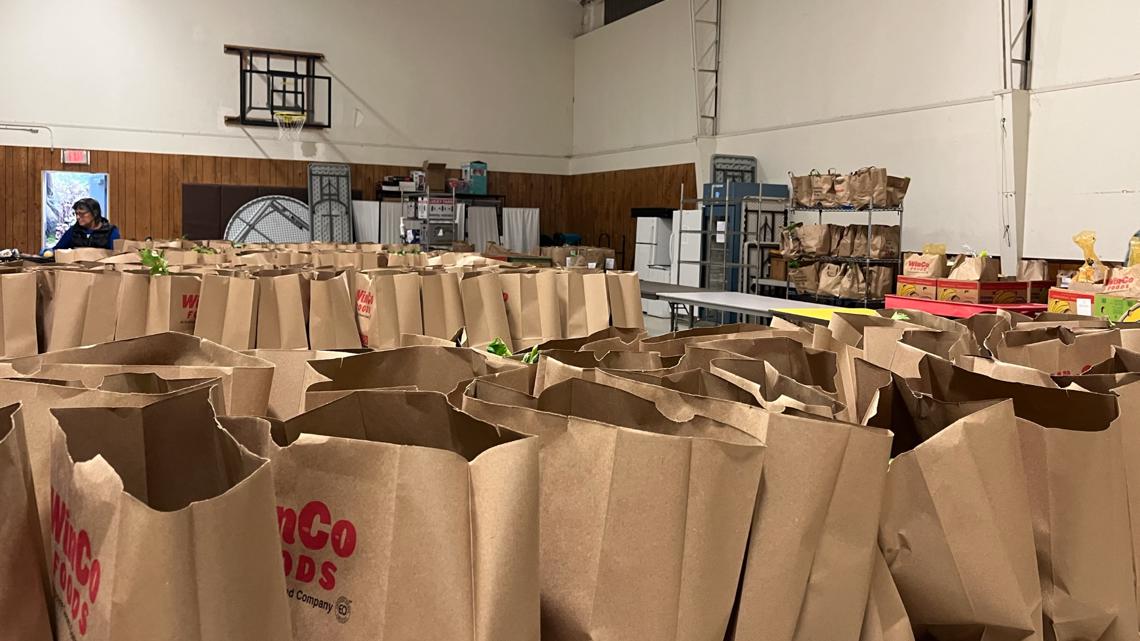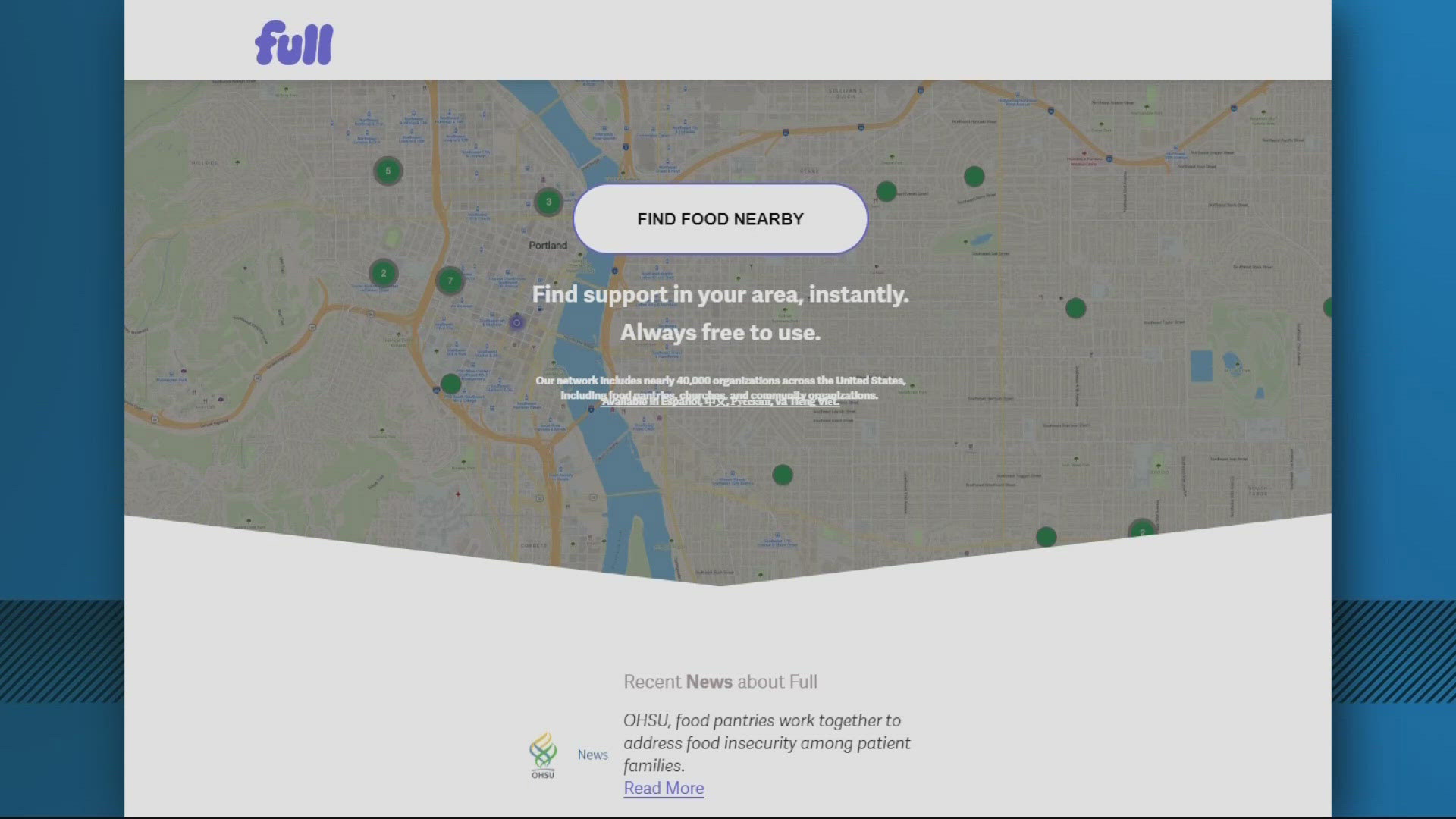PORTLAND, Ore. — Food insecurity is a nationwide problem, and accessing food when a child is hospitalized can make it an even more prominent issue.
Fortunately, there's now a program that was launched in September to ensure families aren't going hungry or being forced to choose between staying by their child's bedside or providing food for the rest of the family.
It's called Food for Health Network and was made possible through a partnership with Portland Open Bible, as well as nine other food pantries, and OHSU Doernbecher Children's Hospital.
Those in need can simply order groceries through a digital platform called Full and put in exactly what they want. Then, their groceries will either be delivered, and depending on when they placed their order, it could even be a same day delivery.
They also have the option to go pick up the groceries from a participating pantry, as well.
Families can get groceries delivered up to four times, or they can go and pick them up for as long as they need.
“One of the pediatricians recognized that some of the families were going home to empty kitchens, and that was really adding stress and adding difficulties to their transition home," said Anna Garwood, the research project coordinator with Nourish, another food pantry program at Doernbecher.
"They can choose what they like, and then that goes out to a network of 10 pantries in the Portland metro area, and the staff from those pantries will home deliver to the doorstep of the family," she continued.
The collaborative effort between Nourish and Portland Open Bible Community Pantry, or POBC, has led to the Food for Health Network.
In 2022, Oregon's food insecurity rate was at 13.1%. This was up from the 9.8% the state saw in 2020.
Still, it's slightly lower than the national average of 13.5%.
“All around the tri-counties, they're getting maybe one to two orders a week from people and then delivering them, and people are very happy, and it's very helpful," said Aaron Brown, the program director at POBC.
Currently, along with having a child who is receiving inpatient care or has in the last month, the service is currently only available to those in Multnomah, Clackamas and Washington counties.
He said giving people the freedom to choose what food they want also cuts down on food waste.
People, like Trina Coffin, now work with the program as a head coordinator as well, and know firsthand how crucial a service like this is.
Coffin is a single mother of four, and three of her children had inpatient stays at Doernbecher, with the latest happening in 2020.
“I was frightened. I couldn’t reach out for help because I didn’t want to lose my kids that were at the house," she said.
“We’re all human, a human body needs food, we do need help once in a while in our life. I know it’s a scary feeling, it might be a heavy feeling, an embarrassment or a failure feeling, but once you ask and reach out, just to see your child or you to eat a healthy meal, you’ll feel so much better, you’ll feel so much relief,” she continued.
Currently, along with POBC, other participating organizations are Portland Adventist Community Services, Clackamas Service Center, Tualatin Food Pantry, SnowCap, Neighborhood House of Bread, Lift Urban Portland, Ester's Pantry, St. John's Food Share, and Bethlehem House of Bread.
The goal is to ideally expand statewide, and also add pantry sites.
Volunteers and donations are always welcome, which can be done at the POBC website and on the OHSU Foundation website.



